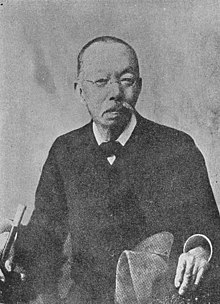
Takagi Saburō was a Japanese diplomat and businessman during the Meji period. Born on March 9th, 1841 as the son of a samurai under the Shōnai Domain in Tokyo, Saburō enrolled in the naval school, Warship Navigation Institute in 1859. During the late 1860s, Saburō studied overseas in America at the Rutgers Grammar School as a companion to Katsu Koroku, the son of statesman Katsu Kaishu. He, along with Kusakabe Taro, Matsumura Junzo, and several other Japanese students were labeled as the “the England of Asia” by Guido Verbeck of the Dutch Reformed Church. On April 19th, 1870, Takagi Saburō, Katsu Koroku, and 8 other students shared a photo with Rutgers Professor David Murray. The following year, Saburō became the diplomatic secretary of Japanese legation in the United States. He later became an acting minister and played an important role in completing a postal treaty between America and Japan. After retiring from the Ministry of Foreign Affairs in 1880, Saburō returned to Japan and was the director of Yokohama Doshin Company for 30 years, which was a Japanese company that specialized in importing silk. Although he died on March 28th, 1909, Takagi Saburō’s company was renowned for its sericulture (silk farming) methods and expertise in silk products.